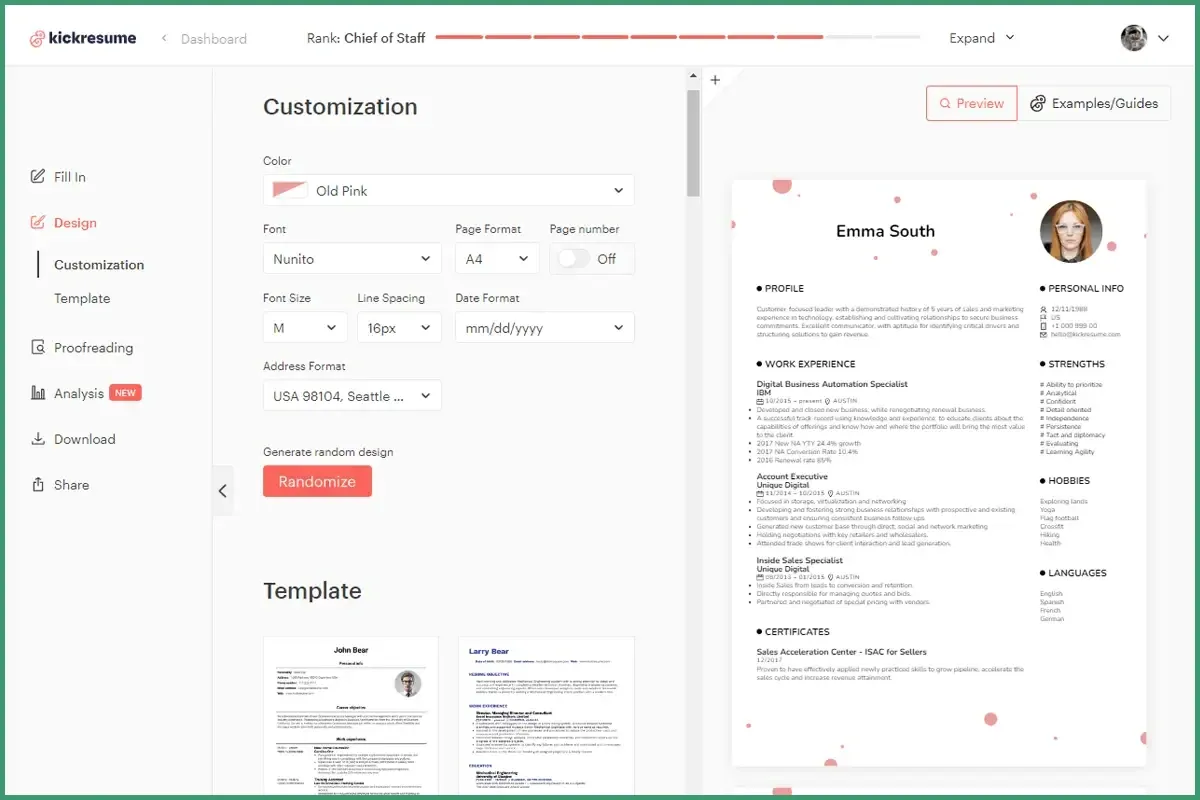Good Morning from San Francisco,
OpenAI plants its flag in a Norwegian fjord. The company will spend $1 billion on 100,000 AI chips near the Arctic Circle, chasing cheap hydropower and natural cooling. It's Europe's latest bid for AI independence.
Meanwhile, Zuckerberg promises "personal superintelligence" in a manifesto that sounds like Altman's recycled talking points. Meta just burned through $14.3 billion on talent grabs and hundred-million-dollar packages. Companies don't spend like this when they're winning.
Two stories. Same theme. Everyone's racing to control the future.
Stay curious,
Marcus Schuler
OpenAI Plants Its Flag in a Norwegian Fjord

OpenAI picked one of Europe's coldest spots to build one of its hottest data centers.
The company announced Thursday it's launching Stargate Norway, a $1 billion facility targeting 100,000 NVIDIA GPUs by 2026. The site sits in Kvandal, near Narvik in northern Norway, where cheap hydropower meets Arctic air.
This marks OpenAI's first European data center under its "OpenAI for Countries" program. British startup Nscale and Norwegian energy firm Aker will split ownership 50-50. The initial 230 megawatts could expand to 520 megawatts, making it among Europe's largest AI facilities.
The timing fits Europe's push for "sovereign AI" - keeping data processing inside European borders. Norway offers what AI centers crave: abundant renewable power and natural cooling. The country built its economy on cheap energy, powering aluminum and fertilizer plants for decades. AI is just the next step.
The spending is massive everywhere. Microsoft, Alphabet, Amazon and Meta plan to spend over $300 billion on data centers this year. McKinsey thinks global demand will hit $5.2 trillion by 2030.
Why this matters:
• Europe wants AI infrastructure it controls, not systems owned by US or Chinese companies - data centers have become geopolitical tools.
• Norway's renewable model offers an alternative to water-guzzling facilities in drought-prone Texas and Arizona, but it's just one project in an unprecedented resource grab.

AI Image of the Day

Prompt:
a girl 3D character in Skullpanda-inspired toy character, large head, super deformed proportions, pale skin, blank expression, deformed big glossy lips, dramatic eyeliner, short nose, round big eyes, wearing a futuristic translucent jacket with water ripple textures, holographic platform sandals, clear water bottle-shaped bag with glow accents, long aqua-blue braids floating around her, seated on an invisible surface as if suspended in air, top-down camera angle with ethereal light effects, glowing makeup and eye stickers, clean electric cyan background, Mixed race girl with serene but futuristic expression, designer toy style, high-resolution render, collector designer toy aesthetic, hyper detailed, rendered in C4D and Blender, mz trendy fashion and accessories, Skullpanda + toyism + fashion figure style
Zuckerberg's AI Vision Sounds Awfully Familiar

Mark Zuckerberg wants you to trust him with superintelligent AI. Hours before Meta's earnings call, he published a manifesto promising "personal superintelligence" that helps you "achieve your goals" and "become the person you aspire to be."
Sound familiar? Sam Altman said almost the same thing a year ago: "eventually we can each have a personal AI team, full of virtual experts." Zuckerberg's 616-word memo never defines what makes his vision different from existing AI assistants.
The timing feels suspicious. Meta just spent $14.3 billion on Scale AI and offered recruitment packages exceeding $100 million—one reportedly topped $1 billion. Companies don't spend this aggressively when they're ahead. They spend like this when they're falling behind.
Look at what happened before. The metaverse burned through $60 billion while VR headsets sat unused. Meta's current AI efforts face problems too—Llama 4 keeps getting delayed.
The smart glasses angle reveals another motive. Zuckerberg claims glasses will become "primary computing devices." This isn't about helping users—it's about escaping Apple's App Store fees and control.
Trust remains the biggest problem. Meta has paid billions in privacy fines and faced Cambridge Analytica scrutiny. Now Zuckerberg wants AI that "knows us deeply."
Why this matters:
• Meta's AI promises copy what competitors already offer while massive spending shows the company chasing rather than leading.
• Another Zuckerberg manifesto follows the same pattern—big promises, unclear details, and questionable results based on past performance.

🧰 AI Toolbox
How to Write Your Resume with AI

KickResume creates professional resumes and cover letters using AI. Pick a template, fill in your details, and the AI writes compelling descriptions of your skills and experience. It also checks for errors and gives feedback.
Tutorial:
- Sign up for a KickResume account
- Choose a resume template for your industry
- Fill in your work experience, education, and skills
- Use the AI writer to create strong job descriptions
- Get feedback from the AI proofreader
- Create a matching cover letter with the same design
- Download as PDF and start applying for jobs
URL: https://www.kickresume.com/en/
Better prompting...
Today: Cold Outreach E-Mail
Write a personalized cold outreach email using the following details:
Context:
- My company: [Company name and brief description]
- Our product/service: [Specific product/service and key benefits]
- Target recipient: [Job title] at [Company name] in [Industry]
- Specific challenge I want to address: [Pain point relevant to their role/industry]
Email Requirements:
- Subject line: Create a compelling, personalized subject line (not generic)
- Opening: Reference something specific about their company, recent news, or industry challenge
- Value proposition: Clearly explain how our solution solves their specific pain point
- Social proof: Include a brief, relevant success story or metric
- Call-to-action: Suggest a low-commitment next step (15-min call, demo, case study)
- Length: Keep to 150-200 words maximum
Tone: Professional but conversational, avoiding sales-heavy language
Output format:
- Subject line
- Email body with clear paragraphs
- Brief explanation of personalization elements used
AI & Tech News
Apple's India Escape Plan Meets Trump's 25% Tariff Reality
Trump announced 25% tariffs on Indian goods starting Friday, threatening Apple's $40 billion iPhone production strategy that moved 71% of US iPhone supply there to escape China problems. The timing couldn't be worse for Apple, which has dropped 17% this year while struggling to catch up in AI and now faces impossible choices between absorbing massive costs or hiking iPhone prices even higher.
Trump Goes Soft on China AI Controls Despite Tough Talk
Trump's administration is backing away from replacing Biden-era AI export controls that limit chip sales to China, approving certain Nvidia semiconductor sales despite promising a tougher stance. The shift draws bipartisan criticism as Trump tries to balance his tough-on-China reputation with cutting new trade deals that apparently require letting Beijing buy the very technology he claimed to want to restrict.
Microsoft Hits $4 Trillion After Azure Numbers Impress Wall Street
Microsoft shares jumped 8% after hours to push its market cap past $4 trillion, joining Nvidia in rarefied air after the software company reported 18% revenue growth driven by its Azure cloud business. The company disclosed Azure revenue in actual dollars for the first time at $75 billion annually, apparently deciding investors deserved to know how much money their cloud division actually makes.
Meta Beats Earnings, Stock Jumps 10% on AI Ad Money
Meta shares surged 10% after the company reported $47.5 billion in second-quarter revenue, beating estimates by $2.7 billion as its AI-powered ad system drove 22% growth. Zuckerberg spent the earnings call talking about "personal superintelligence" while his Reality Labs division quietly burned through another $4.5 billion, apparently the price of building the metaverse nobody asked for.
Arm Decides to Compete With Its Own Customers, Stock Drops 8%
Arm Holdings shares fell 8% to $149.50 after the British chip designer announced plans to build its own processors instead of just licensing designs to others, putting it in direct competition with major customers like Nvidia and Amazon. The company trades at over 80 times expected earnings compared to Nvidia's 35 times, making this strategic gamble even riskier as it threatens the licensing relationships that built the business.
Tech Giants Promise to Fix Healthcare Data, No Consequences If They Don't
Major tech companies including Amazon, Apple, Google, and OpenAI pledged to work with the Trump administration to make America's fragmented medical data more useful, with results promised by early 2026 in a voluntary agreement announced at the White House. The initiative involves over 60 companies promising to improve data sharing and build better health apps, though it's unclear what happens if they simply decide not to follow through on their commitments.
Oxford AI Startup Ultromics Raises $55M to Catch Heart Failure Doctors Miss
Oxford-based Ultromics raised $55 million to scale its AI platform that detects hard-to-diagnose heart failure from routine echocardiograms, improving detection rates by 73.6% compared to standard methods. The FDA-cleared technology addresses a massive blind spot where 64% of certain heart failure cases go undiagnosed, with major health systems like University of Chicago and UPMC backing the funding round.
Trump Kills Tax Loophole That Made Your $5 Phone Case Free Shipping
Trump signed an executive order ending the de minimis exemption that let packages worth $800 or less enter the US duty-free, taking effect August 29 and hitting companies like Temu and Amazon that built businesses around cheap Chinese imports. The move targets a loophole that exploded from 115 million shipments last year to 309 million this fiscal year, apparently because Americans really love buying random stuff for under ten bucks.
Uber Eats Uses AI to Make Your Sad Takeout Look Instagram-Ready
Uber Eats is rolling out AI tools that generate menu descriptions, enhance food photos, and summarize customer reviews, with the system able to digitally edit meals onto different plates or backgrounds to make them more appetizing. The company will also pay customers in app credits for uploading their own food photos, apparently betting that crowdsourced disappointment shots will somehow improve the ordering experience.
Google's AI "Virtual Satellite" Maps Every Square Meter of Earth
Google DeepMind released AlphaEarth Foundations, an AI model that acts like a virtual satellite to map Earth's entire land surface in 10-meter squares by combining data from dozens of real satellites, radar systems, and climate sensors. The system is already helping over 50 organizations including the UN map previously unknown ecosystems and track deforestation, apparently proving that sometimes the best way to watch the planet is to never leave the ground.
Cloud Startup Oxide Raises $100M to Fight Big Tech's Rental Empire
Oxide Computer raised $100 million to build server systems that let companies run their own cloud infrastructure instead of paying Amazon, Google, or Microsoft monthly rent. The startup's CEO believes businesses should own their cloud computing rather than lease it forever, which sounds revolutionary until you remember that's how servers worked before Jeff Bezos convinced everyone renting was better.
Data-Labeling Startup Surge AI Seeks $1 Billion at $25 Billion Valuation
Surge AI, a profitable data-labeling startup that's never taken venture capital, is raising $1 billion at a $25 billion valuation from investors including Andreessen Horowitz and TPG. The bootstrapped company made $1.2 billion in revenue last year compared to rival Scale AI's $870 million, though Scale's recent $29 billion valuation came with the awkward side effect of its founder leaving to join Meta.
🚀 AI Profiles: The Companies Defining Tomorrow
Surge AI: The Data Labeling Giant That Nobody Saw Coming
Edwin Chen built a billion-dollar empire while everyone else was chasing headlines. His bootstrapped data-labeling startup just crushed the competition by doing one thing obsessively well: making AI training data that actually works.
The Founders 👨💻
Edwin Chen launched Surge AI in 2020 after stints at Google, Facebook, and Twitter. Based in San Francisco with 150 employees, Chen funded growth through revenue instead of VC cash. His mission: fix the garbage-in-garbage-out problem plaguing AI development.
The Product 🎯
Surge connects elite human annotators with AI labs needing premium training data. Core strength: matching PhD-level experts to complex tasks instead of treating labelers like interchangeable widgets. Specializes in reinforcement learning from human feedback (RLHF) - the sophisticated stuff that makes chatbots actually useful. Clients include OpenAI, Google, and Anthropic.
The Competition ⚔️
Scale AI dominated this space until Meta's $14.3B investment spooked customers who didn't want their data shared. Surge swooped in as the "Switzerland" option. Hit $1B revenue in 2024 while Scale managed $870M. Other players like Appen and Labelbox fight for scraps.
Financing 💰
Zero outside funding until now. Seeking $1B at $25B valuation with JPMorgan leading talks. Potential investors include Andreessen Horowitz and TPG. Chen kept 100% control while scaling to unicorn status - Silicon Valley's ultimate flex.
The Future ⭐⭐⭐⭐⭐
AI's hunger for quality data keeps growing exponentially. Surge dominates the premium tier where margins matter most. Risk: automation could eventually replace human labelers. But for complex AI alignment work, humans stay essential. Chen cracked the code on profitable AI infrastructure - that's solid gold in this market.









